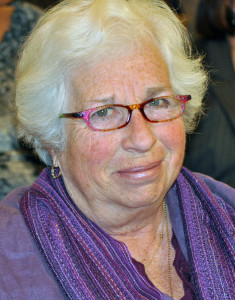Community Groups: “Cut Police Bureaucracy, Increase Officers”
Jun 14, 2013
Posted in Police-Public Safety, Responsive Government

By Ken A. Epstein
Contrary to what city officials are saying, Oakland can reduce the number of sworn officers while increasing the number of police responding to crime, according to PUEBLO, a local group that has long advocated for police accountability, and city unions that are currently negotiating for a new contract.
“Hiring civilians to replace sworn officer doing jobs unrelated to crime fighting means that sworn (officers) can be reassigned to patrol or criminal investigation, where they are needed to cover ‘hot spots’ and respond to calls for assistance. Moreover, these reassigned senior officers will hit the streets much more quickly than the year it takes to get the academy rookies out on patrol,” said Rashidah Grinage, PUEBLO’s executive director in a prepared statement.
“We have identified 48 sworn positions in the Oakland Police Department that could be effectively civilianized, “ which would save the city $6.8 million a year and achieve a one-time savings of $6 million in academy in training costs by transferring officers from desk jobs to the field, according to the proposal written by SEIU Local 1021.
The pay of a typical sworn officer in one of these positions, including wages, benefits and overtime, is $246,659. A civilian in that that same position would cost a total $85,918, according to the union. “The average total annual cost of a sworn officer is significantly higher – almost three times higher – than that of a civilian position.”
“Clearly we live in a city where police are not responding to certain types of crimes because they say don’t have enough officers on the streets, said Dwight McElroy, president of Local 1021 Oakland.
“We can no longer operate as a city under these conditions,” he said. “We can put these (sworn officers) on the streets tomorrow,” he said, but it takes about a year to select and train officers at a police academy.
The trend in the U.S. for the past two decades in police departments has been to hire civilians to do jobs that do not require sworn officers. A 2008 report commissioned by the Oakland Police Department identified at least 48 positions staffed by sworn officers that could be filled by qualified civilians at much lost cost, Grinage wrote in her statement.

“Former OPD Chief Anthony Batts included this recommendation in his five-year strategic plan,” she wrote.
Positions that could be civilianized include sworn officers who perform work in clerical work in Internal Affairs as well as those in the Records Unit, Communications Unit, the Training Unit, Police Information Technology and Background and Recruiting,
Some members of the City Council, Mayor Jean Quan and City Administrator Deanna Santana seem committed to the belief that“We need to increase the number of sworn officers in the Oakland Police Department,” Grinage wrote, while in fact, “What is needed is more personnel at OPD, but not necessarily more sworn officers.”
Transferring already trained officers to crime fighting also makes sense, Grinage says, because the cost of recruiting through the pre-academy and post-academy process is “extremely wasteful.”
The cost of obtaining 55 successful graduates from an original pool of 4,000 applicants is $5,018,000. Of the 55 graduates, only 40 are actually hired by the police department, she wrote.
PUEBLO is proposing that the new 2013-2015 civilianize at least 25 positions and omit one scheduled police academy.
The city would have more money to fight crime, Grinage wrote, “if civilians took accident reports, collected evidence, worked in… crime mapping, oversaw communications and other non crime-related activities.”